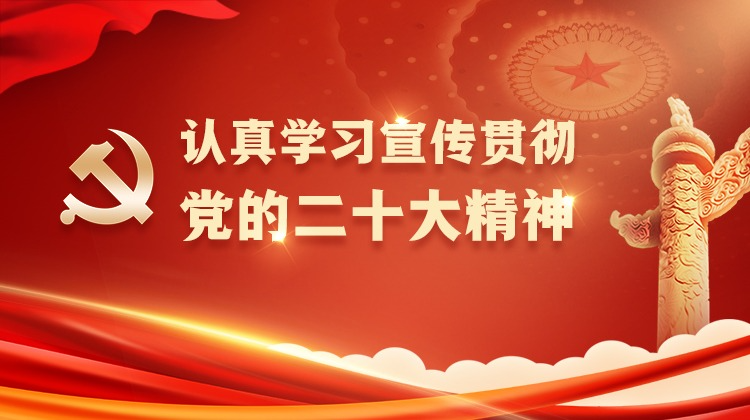BEIJING, April 7 (Xinhua) -- The United States, the world's largest consumer market with unparalleled purchasing power, is now facing an emerging trend of consumption downgrade.
Dollar stores across the country are teeming with shoppers as they hunt for sales and bargains. Soaring living costs have made these budget retailers more popular than ever, illustrating the pinch of inflation -- U.S. consumers are adapting, painfully, to a harsh new reality.
"We believe it doesn't matter how much money you make, everybody is hurting right now," said Michael Creedon, CEO of U.S. discount retailer Dollar Tree, in a recent earnings call. The company is "seeing stronger demand from higher-income customers" as value-seeking behavior spreads across all customer groups, he said.
Since taking office, the new U.S. administration has hiked tariffs on imports from major trading partners, with sweeping "reciprocal tariffs" announced Wednesday. These tariff hikes are exacerbating the financial burden on domestic consumers, who are already grappling with shrinking purchasing power and are being compelled to alter their spending habits.
A recent survey of U.S. consumers by Numerator revealed that 80 percent of respondents are worried about how tariffs will affect their finances or shopping habits. This concern is driving behavioral changes, with 76 percent of respondents planning to change their finances or shopping behaviors in response to the new tariffs. The most popular reaction is "looking for sales or coupons to offset price increases," as per the survey.
Elaborating on how the U.S.-imposed tariffs are backfiring, Yao Weiqun, executive director of Shanghai Institute for Strategy of International Trade Center, said that one of the primary negative impacts is the rising prices of imported goods in the U.S. market.
With the latest tariffs announced Wednesday taken into account, all tariff hikes will result in a loss of purchasing power of 3,800 U.S. dollars per household on average in 2024 dollars, according to estimates by the Budget Lab at Yale, a policy research center.
"Prices of daily essentials and intermediate manufacturing goods are particularly increasing," Yao said, "which could prompt U.S. consumers to trade down to cheaper alternatives."
Similarly, various prominent American retailers have raised alarms regarding consumer spending trends as tariffs fuel inflation and strain household budgets. For instance, Doug McMillon, CEO of Walmart Inc., has said that as food prices remain notably high, consumers are becoming increasingly cautious about their spending.
"You can see that the money runs out before the month is gone," he said, "and people are buying smaller pack sizes at the end of each month."
For Nobel laureate economist Paul Krugman, one of the key issues surrounding the tariffs is uncertainty. Krugman said that the "real danger" lies in the price increases, which, combined with broader economic uncertainty, could lead consumers and businesses to expect higher inflation in the future.
Clearly, U.S. consumers are deeply aware of the mounting uncertainties caused by the tariffs, and their concerns about the future are intensifying.
According to the University of Michigan's latest survey, U.S. consumer sentiment in March fell for the third month in a row as concerns about the economy intensified amid tariff chaos.
"Consumers continue to worry about the potential for pain amid ongoing economic policy developments," the survey noted, citing respondents' worsening expectations since February for their personal finances, business conditions, unemployment, and inflation.
"If you want to produce something, if you want more of something produced in the United States, a tariff, which raises costs to consumers, is a very blunt instrument," Krugman said. "And it may actually backfire because of retaliation, because it raises costs to other industries."
As consumers cut their spending in response to economic uncertainties, U.S. retailers are feeling the pinch of the tariff hikes. The latest data from the U.S. Department of Commerce shows that retail sales in February increased by only 0.2 percent from the previous month, remarkably lower than the 0.7 percent growth projected by economists.
Multiple industry leaders have expressed concerns regarding the impact of tariffs on the supply chain, which connects consumers, vendors and retailers. "International trade is critically important to our business and industry," said Corie Barry, CEO of consumer electronics giant Best Buy. "The consumer electronics supply chain is highly global, technical and complex. China and Mexico remain the No. 1 and No. 2 sources for products we sell, respectively."
Barry expects that vendors across Best Buy's entire assortment will pass along some level of tariff costs to retailers, "making price increases for American consumers highly likely."
The ripple effects are becoming increasingly evident. Rising prices and economic uncertainty are eroding consumer confidence, leading to a decline in spending, a crucial driver of economic growth. This in turn fuels fears that the U.S. economy is decelerating and potentially sliding into a recession.
The Budget Lab on Wednesday forecasted the country's real GDP growth to be 0.9 percentage points lower this year and the economy to be persistently 0.6 percent smaller in the long run, with all the 2025 U.S. tariffs and retaliation implemented to date accounted for.
Addressing the tariffs' disruptive effects, Mohamed Moutii, a research associate with the Arab Center for Research, said that "tariffs do not protect American industries -- they weaken them." "They inflate prices, stifle competition, and erode international trade relationships."
"The path to sustainable growth and enduring prosperity lies in openness, not economic isolation. Free trade has delivered immense benefits in the past, and it remains the strongest foundation for a more dynamic and interconnected global economy," he added. ■







 新华报业网
新华报业网














 Android版
Android版
 iPhone版
iPhone版




